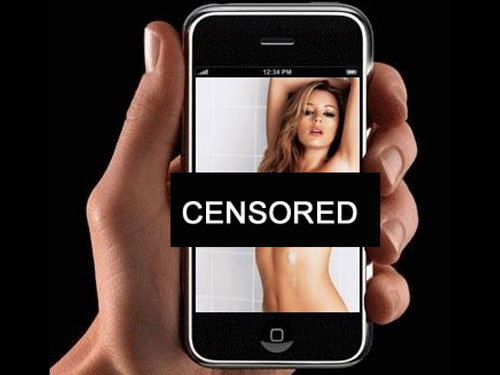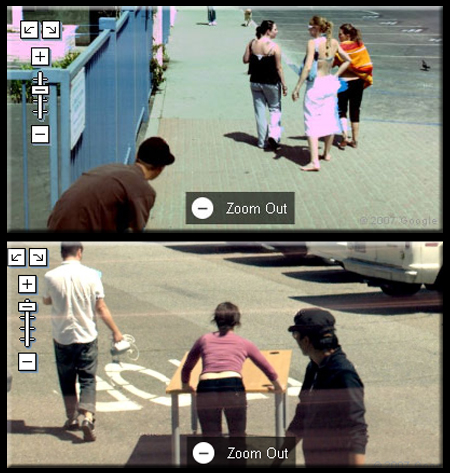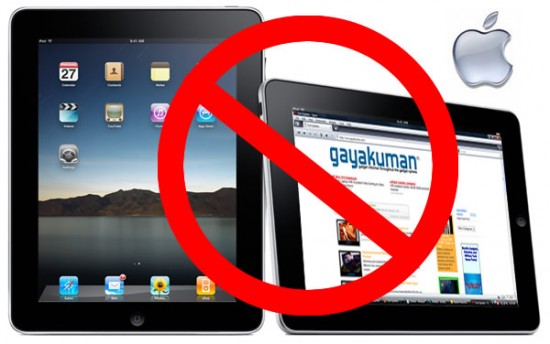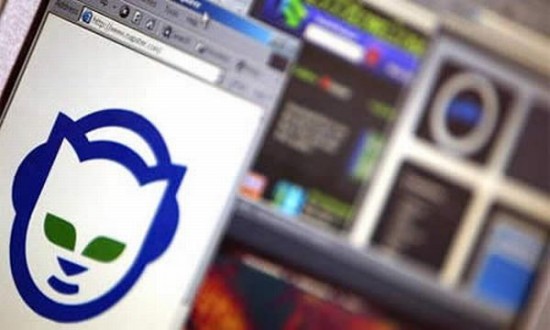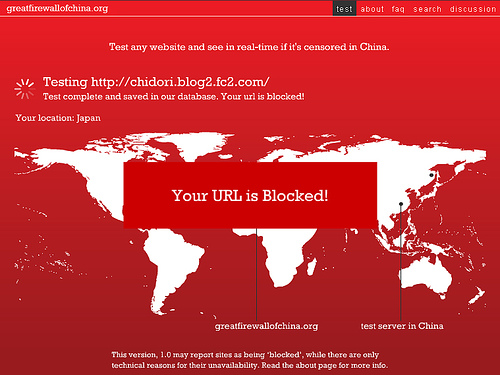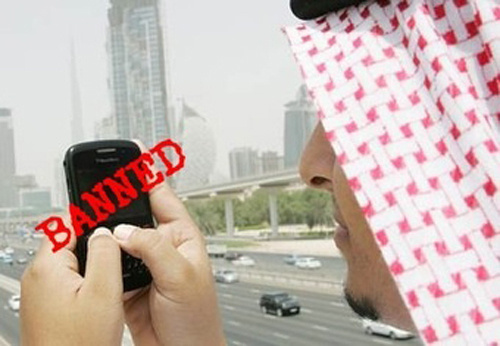번역은 제가~~ㅎㅎ
10. Apple’s Sexy Apps - 애플의 섹시 앱 출시
These applications would have taken the notion of AppleCare to an entire new echelon. In the end of February year 2010, Apple formally banned from its iTunes Store applications that were deemed too coarse and lascivious. Among the applications considered out of bounds was iBoobs, in which users toggle through wobbling bosoms on display. Techies saw the move as a sign that Apple would maintain a heavy hand in regulating its marketplace.
9. Google Street View - 구글의 스트리트 뷰
Well the technology is advancing at an enormous pace no doubt and with the compilation of street maps into a single one application this would have been a tremendous improvement in GPS system and related technologies but due to privacy related issues the governments of both Greece and Austria banned Google from deploying its street-level cameras in May — the front line, perhaps, in a pushback against Google’s interfering eyes.
8. Music-Free Marathons - 음악공짜 마라톤 ... 이건 왜막지 ?
You might have a chance of getting the feeling when you are going to some faraway place and as you get there you found that your ipod is left at your home. Now imagine running 26 miles on a track without listening music. Well yes, it is so. In the year 2007 USA Track & Field, the governing body for running, banned headphones and portable audio players like iPods at its official races. The measure was meant to protect the runners’ safety.
Read more: http://realitypod.com/2012/03/top-10-technology-bans/#ixzz20q2uX7UT
7. Cell Phones in Cuba - 쿠바의 핸드폰 금지
When Fidel Castro determined to legitimately hand over the reins of authority in Cuba to his younger brother Raúl on Feb. 24, year 2008, it would have been against the law for Fidel to inform him through viable mobile phone. Over the span of his half-century of statute, Fidel protected the restrictions he placed on Cuba’s 11 million citizens by saying they were essential sacrifices in the “battle of ideas” against enemy i.e. United States.
6. Israel Blocks the iPad - 이스라엘은 아이패드를 막고
Israel is dwelling to some of the majority forward-looking technology in the world, but its gadget geeks exuded for two weeks in April when Tel Aviv banned the s of the iPad on Israeli grounds. During that enchantment, any passenger landing in the country with the gadget had it seized and was obligatory to pay $12 a day to have it kept in possession. State authorities claimed at the time that the wi-fi functions of the iPad matched to U.S. standards, not the European ones in place in Israel, and therefore comprised a potentially troublesome danger to the country’s military frequencies — an assert with modest proof to hold it. The ban was lifted off on April 25.
5. Colleges Ban Napster - 대학들은 냅스터(p2p 파일공유 프로그램) 를 막고
Thirty-four percent of U.S. colleges and universities have banned the music file trading program Napster for Internet users surfing over campus servers, according to a report from technology market research company Gartner Group. As students return to campus from summer vacation, college administrators wrestle with the legal and ethical questions surrounding the controversial program from Napster Inc. Source: CNN
4. Laser Pointers - 레이져 포인터 - 위험해서 그러나 아니면 ?
You must have noticed your University professor giving lectures and explanations using Powerpoint and have used similar class laser pointers to emphasize something which demanded attention. Well, yes the same type laser pointers as the technology have advanced with a lightning speed the laser pointers became smaller and more powerful. You could have one on your key chain and confuse your boss in a budget meeting. You could point to the constellation Orion and your kids. You could even use one to ward off bears while camping. Or you could shoot a soccer goalie in the eye during a World Cup qualifier (Saudi Arabia vs. South Korea, 2008) or possibly point it at passing planes. In the year 2008 Australia and most of Europe banned the use of laser pointers.
Read more: http://realitypod.com/2012/03/top-10-technology-bans/#ixzz20q38rWAu
3. The Great Firewall of China - 중국의 엄청난 방화벽
The paragraph is taken from the Times Magazine.
“China has more Internet addicts than most countries have people, and its leadership knows full well the power of the Web. A government white paper in June hailed the Internet as “a crystallization of all human wisdom” but, in typical Beijing speak, reminded the world that “within Chinese territory, the Internet is under the jurisdiction of Chinese sovereignty. The Internet sovereignty of China should be respected and protected.” What this alludes to is the vast, often mysterious set of blocks and bans the authoritarian government has imposed, sometimes relaxed and then reimposed on whole swaths of the online world.”
2. Pakistan Bans Facebook - 파키스탄은 페이스북을 따시키고
Being a part of one of the Muslim community, it is very unhealthy act; that is disrespecting someone’s creed and religion. Islam is one of the major religious groups in this world which has a tactless authenticity; most of other religious groups are turning towards it due to its simplicity and genuine literature. Islam itself gives us lessons of respecting others creed and cast. In the past few years many different religious communities tried to make fun of Muslim community via facebook, with the effect of which the Supreme Court called the banning of facebook.com in Pakistan.
1. UAE, Saudi Arabia Ban the BlackBerry - UAE는 블랙베리(셀룰러폰) 를 금지.
The United Arab Emirates is to block sending e-mails, accessing the internet, and delivering instant messages to other Blackberry handsets. Saudi Arabia is to prevent the use of the Blackberry-to-Blackberry instant messaging service. Both nations are unhappy that they are unable to monitor such communications via the handsets. This is because the Blackberry handsets automatically send the encrypted data to computer servers outside the two countries. The UAE ban is to start in October, while the Saudi move will begin later this month. Abdulrahman Mazi, a board member of state-controlled Saudi Telecom, has admitted that the decision is intended to put pressure on Blackberry’s Canadian owner, Research in Motion (RIM), to release data from users’ communications “when needed”. The UAE’s telecoms regulator, TRA, said the lack of compliance with local laws raised “judicial, social and national security concerns”.
Read more: http://realitypod.com/2012/03/top-10-technology-bans/#ixzz20q3IH8wr
'무한정보제공' 카테고리의 다른 글
| 유아 색칠공부 자료 모은것 압축파일 받으시면되요~ (1) | 2012.07.29 |
|---|---|
| 콘텐츠 제공 서비스 품질인증 마크를 받아요~ (0) | 2012.07.24 |
| PC 게임의 진화과정을 한눈에~ The Evolution of PC Games (0) | 2012.07.23 |
| 캘리포니아대-샌디에이고 가이젤도서관(Geisel Library) (0) | 2012.07.17 |
| 앉아 있는것은 너를 죽이는 일 - 의자에 앉아 있는것의 진실... 인포그래픽 (0) | 2012.07.09 |
| Scientist Discovers Ant Art - 개미 예술 사진 (0) | 2012.07.05 |
| 월간 콘텐츠 시장동향 6월호 - 국내/외 콘텐츠 통계 브리핑 자료 (0) | 2012.07.03 |
| 고래가그랬어 김규항 발행인의 교육칼럼 모음집 (1) | 2012.07.03 |
더욱 좋은 정보를 제공하겠습니다.~ ^^

